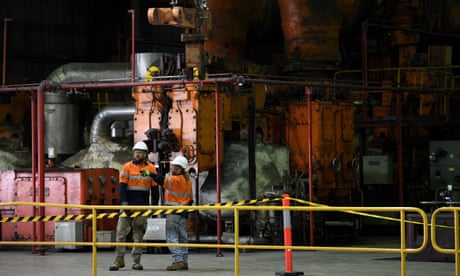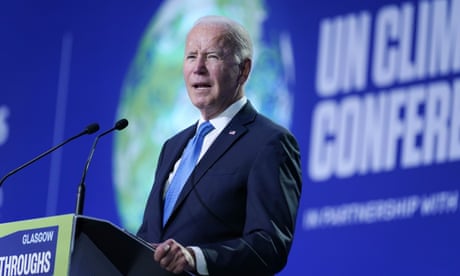Extract from The Guardian
Minister under pressure to release modelling he claims shows consumers would be $560 a year worse off under ALP’s electricity policy.
Tue 19 Apr 2022 12.27 AEST
Last modified on Tue 19 Apr 2022 14.37 AESTNews Corp tabloids on Tuesday published stories on their front pages claiming government modelling showed consumers would on average be $560 a year worse off by 2032-33 under an ALP policy to accelerate the construction of new electricity transmission links.
Taylor, who is also the emissions reduction minister, issued a press release making the same claim, but the statement did not explain how the numbers were reached or who did the analysis. His office did not respond to a request for the modelling on Tuesday morning.

Chris Bowen, ALP’s climate change and energy spokesman, said the government release was a “desperate attack” and “just the latest in more than a decade of climate scare campaigns from the Liberals”.
Labor’s policy is to create a $20bn “rewiring the nation corporation” charged with making decisions on new transmission links to allow a faster influx of large-scale solar, wind and batteries in regional renewable energy zones.
“It also shows that the Morrison government’s last-minute conversion to net zero is a fraud,” he said. “If the Morrison government is so proud of its so-called ‘modelling’ it should release it publicly for scrutiny, not selectively quote from it and keep it locked away. Where is the modelling? Who conducted it? What are its assumptions?”
Taylor said Labor wanted to “gold-plate” Australia’s electricity grid by bringing forward 11 pieces of energy infrastructure that would lead to the cost of poles and wires – which make up nearly 50% of consumer bills – increasing significantly.
He said only two of the 11 – the Marinus link between Tasmania and Victoria and the KerangLink between Victoria and New South Wales had been considered “actionable” by the Australian Electricity Market Operator.
Experts say electricity prices are likely to be volatile and potentially increase whoever is in power after the 21 May election. Wholesale power prices – which make up about a third of consumer bills – have soared in recent weeks, in part due to coal power plant outages and the cost of gas power increasing following Russia’s invasion of Ukraine.

Danny Price, managing director of Frontier Economics, said he had no involvement in the government modelling. He said he believed modelling for Labor by the consultants RepuTex that suggested power prices would fall as the grid was transformed was “ridiculous”, but that an additional $20bn of network investment would be required whoever was in power.
Price said wind and solar generated electricity more cheaply than fossil fuels, but the cost of building new assets – a lot more solar and wind supported by “firming” power, including batteries, and transmission lines – to replace the country’s ageing coal plants would be required in any case to meet the bipartisan target of reaching net zero emissions by 2050.
“The big difference is how quickly you get there and how well you do the transition. Labor wants to get there more quickly than the government and that increases the costs sooner. But either way the costs are going to go up,” Price said.
Bruce Mountain, director of the Victoria Energy Policy Centre, was quoted in the government press release as last year saying he was “sceptical of any claim that more transmission equals lower prices”. He told Guardian Australia he maintained this position but he had also been sharply critical of the Coalition’s energy policies.
He said there was an overwhelming case that localised batteries were the best way to drive a cheap transition to clean energy, and both major parties should leave direct intervention in electricity networks to state governments.
“I think the case for direct intervention by the federal government is weak. The evidence of it not going well under the current government is manifest,” he said. “I think we should not be making the problem worse.”
Tony Wood, energy program director with the Grattan Institute, was quoted in Taylor’s press release saying last year it was “hard to see how the numbers would deliver the savings they [Labor] suggest”. He said he stood by the statement, but accepted that Labor’s proposal to bring forward investment that would have happened anyway at a lower cost of capital could deliver some savings.
He said both major parties were guilty of basing policy decisions on scenarios from economic models, rather than just using the modelling as an indicative guide, and “that will almost always be bad policy because the model will always be wrong”.
Bowen said RepuTex were the country’s “top energy economists” and the government had also used them to model the electricity market.
No comments:
Post a Comment